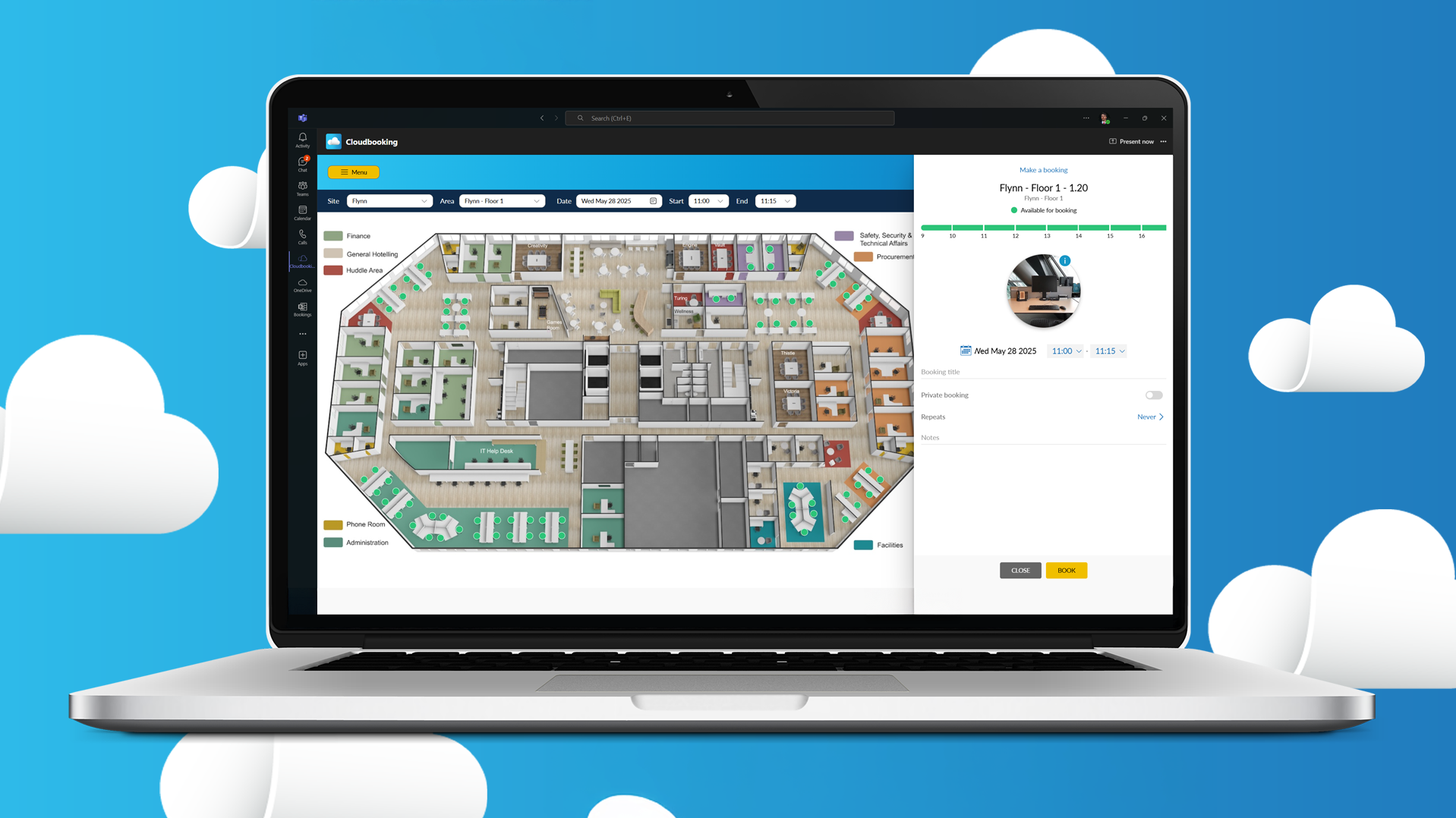
When a team works collaboratively, it works smarter. Team members are more productive, more creative and they’re happier.
The organisational benefits of team collaboration are hard to exaggerate and the rewards simply can’t be understated. Better financial outcomes, improved employee engagement, committed team members, and an overall boost in performance are all the result of the most collaborative teams.
The problem is that while far too many organisations are happy to talk the talk when it comes to the development of collaborative teams, achieving the right level of team cohesion can be much more challenging. That’s especially true in the face of rapid workplace transformation, with workplaces changed forever in the light of the global pandemic.
Related reading: The Future of Work: 8 Trends in Workplace Transformation Report
Before we look at the tricks that successful collaborative teams use, let’s look at some of the barriers.
The primary barriers to cross-team collaboration
According to a Deloitte study, just 9% of employees believe their organisation has a very effective infrastructure for sharing and collaboration (see page 14 of the report). So what exactly are the barriers holding a business back from developing more collaborative teams?
- No buy-in: If team members aren’t convinced of the value of collaboration, they will view it as an extra workload they simply won’t make time for.
- Lack of communication: Without the right collaboration tools, communication slows down, messages get lost, and work gets mislaid. In addition, not everyone on the team will be able to make their voice heard, and so collaboration fails.
- Closed cultures: Company culture is essential to get right, and a culture that doesn’t actively encourage idea-sharing and risk-taking will halt collaboration immediately. Collaborative teams need to know they can deliver new ideas safely and take risks without worrying about blame. A closed, prohibitive culture is one of the biggest barriers to collaborative teams.
However, despite these common barriers, collaborative teams are more important than ever. So here are the first six tricks that successful collaborative teams like to keep to themselves.
Tricks to improve team collaboration
Collaboration is an often underestimated aspect of a team’s needs. Up to 37% of employees want better teamwork in the workplace, and 99.1% want workplaces that encourage open, honest communication. Here’s how to make that happen.
1. Have a collaboration strategy
Don’t invest in collaboration tools until you have a fully plotted-out collaboration strategy in place. Find out from your team what tools it needs and the collaboration processes team members require to be more productive. By taking the time to find out the answers to these vital questions, you will be far more likely to get team buy-in on your approach to developing collaborative teams.
Remember that collaboration in the modern workplace needs to factor in new ways of working, with hybrid work making cross-team collaboration a particular challenge. Know the possible roadblocks your collaborative teams will face and your collaboration strategy will only have a more positive impact.
Related reading: Downloadable Mini-Guide: Adopting Hybrid Working
2. Identify collaboration barriers
There are many reasons why collaboration is a challenge within your organisation. It could be any of the barriers listed above, or it may even be something as simple as a lack of the right collaborative tools. Time constraints may be another issue, and trust remains one of the most common roadblocks to more collaborative teams.
The key here is to ask your teams. Find out what’s preventing them from working more collaboratively and then take steps to reduce those roadblocks. Listen to suggestions and always get feedback throughout the development of your collaboration actions. When collaborative teams can be as much as five times more productive, imagine what that can do to an organisation’s bottom line.
Related reading: Are You Creating Psychological Safety in the Workplace?
3. Highlight clear goals
There’s one dominant difference between a successful collaborative team and an unsuccessful one — purpose. Without a clear goal, purpose becomes lost, and even the most cooperative teams will stumble and falter. The Institute for Corporate Productivity (i4cp) highlights the importance of establishing and reinforcing performance goals for teams.
It’s all about having the right focus. With clearly identified goals, collaborative teams know what they need to do and what they need to achieve. If the goals are shrouded in mystery, time will be wasted seeking clarification, and team members will be unclear about what to do. Set deliverable team and individual collaborative goals and actions and your team will be far more likely to succeed.
4. Reward collaboration success
Individual recognition and rewards are too often the priority for organisations. While individual recognition for great work is valuable (of course), the fact is that successful collaborative teams also need to be rewarded and recognised. Team success is just as important in a successful organisation as individual effort.
And with rewards comes the incentive to work even more collaboratively to achieve even greater success. Always ensure there’s room and protocol for rewarding your most successful collaborative teams, and their motivation will only grow — leading to even more organisational success. The teams will be primed, so they stick to their tasks for longer while being more engaged in their work.
5. Share knowledge
Any organisation is the sum of its collective knowledge. The difference between a successful and an unsuccessful business is based on the ability to collect, store, manage, and ultimately share that knowledge. When collective expertise and information become targeted towards business goals, those goals become easier to reach. So one of the keys to organisational success is the ability to share the individual and collective knowledge of the entire organisation.
When teams can easily access organisational information and knowledge, they will, inevitably, be a lot more productive. If there are barriers to the information they need, productivity halts. That leads to frustration and increased inefficiency. Having a clear and open approach to collective knowledge should be one of the key elements of your collaboration strategy.
6. Open communication channels
We’ve mentioned the need for a culture of trust, where team members aren’t afraid to suggest new ideas and strategies without worrying about taking the blame if something goes wrong. But with that comes an essential element of the most successful collaborative teams — open communication at all times. Whether in-person or online, an open communication approach is vital, with an open-door policy in place at all times.
Every team member needs to know they have access to the decision-makers so they can feel comfortable with their level of team input. That level of open communication also helps to build trust, a KPI for any organisation in the modern age. Make sure there are clear, open channels both in the workplace and online, and your chances of building more collaborative teams can only grow.
Related reading: 7 Things You Need to Build a More Connected Workspace
Additional tricks for collaborative teams
While the above tricks are all crucial and high-impact, these last four tips can also contribute toward team collaboration. While these are considered by many as less important, the fact is that without them as the foundation of your cross-team collaboration, your teams will simply be less impactful.
7. Collaborative leadership
All collaboration should start with the leader of the team. If the team leader is unwilling to work collaboratively, neither will anyone else.
8. Collaboration tools
From global workforces to hybrid teams to full-time in-office employees, communication is both a challenge and the key to successful collaboration. Without the right collaboration tools, communication will fail. And when communication is ineffective, teams will be unable to collaborate.
9. Conflict management
Different opinions are to be expected in a team, and not everyone will agree on everything; it would be a stale and stunted team if so (usually because of a lack of workplace diversity). Conflict management means resolving those situations and using them to create team wins.
10. Encourage creativity
The more innovative your team is, the more likely it will succeed. By encouraging creativity, you develop innovation. Allow teams and individuals the space needed to be creative, and you’ll only improve their ability to collaborate.
Related reading: The Future of Work Collaboration: How to Get Your Office ‘Collaboration Ready’
Start building more collaborative teams
In an increasingly volatile and even hostile business landscape, organisations can fail without warning. So it’s essential that every business owner and team leader has their finger on the pulse at all times and is ready to anticipate the next big thing. With a collective of collaborative teams, organisational agility is far more likely. Collaborative teams are more creative, more productive and simply more effective than their uncollaborative counterparts.
So if you want to drive the success of your organisation, it’s time to take a more strategic approach to team collaboration. Doing so is often the dividing line between the organisations that succeed and those that fall by the wayside.
Having the right space to work in at the right time is crucial for proactive team collaboration. That’s where the Cloudbooking desk booking tools and cutting-edge smart office solutions come in. Make sure your collaborative team members have access to the workplace they need whenever they need it.


